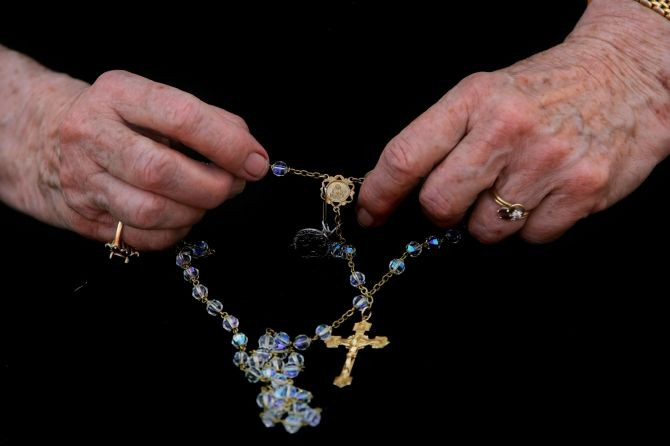Can Religious Beliefs Inflict Inhuman Treatment On Sick Children?

For a parent who has a child that has fallen victim to a serious disease or injury, testing the limits and continuing treating with the hopes of a miraculous religious intervention has become the norm. Doctors believe deeply religious families defy medical reasoning, forcing children to be subjected to "futile and needless suffering."
In new research conducted Dr. Joe Brierley and Dr. Andy Petros, both consultants at the Pediatric and Neonatal Intensive Care Unit at Great Ormond Street Hospital for Children, and the chaplain of the hospital, Reverend Jim Linthicum, it was discovered religious parents insist on the continuation of medical treatment, while they pray for a "miraculous" intervention, even after doctors informed parents there was no hope for recovery.
Doctors analyzed 203 cases where physicians advised parents it would be in the best nature to withdraw or limit intensive care, although many parents agree to withdraw or limit intensive care, there are others who challenge medical reasoning.
Of the cases, 186 led to parents agree to limit or stop treatment while 17 cases led to an unsuccessful resolution on the best way to treat the child between doctors and parents. Parents demand physicians to continue ongoing treatment while doctors advise against it with a considerable amount of medical evidence to support their reasoning.
Sixty-five percent of cases contained parents who directly stated to physicians religious claims that intensive care should not be limited or stopped because of the beliefs of divine intervention to deliver a complete cure.
Research revealed parents of different faiths including Christianity, Islam and Judaism all held the same conviction when it came to divine intervention.
While some cases were settled with the assistance of a relevant religious leader outside the hospital, in other cases physicians was forced to continue care, regardless of their medical judgment. Four children eventually died, and one child survived but with severe neurological disability.
However, although doctors, surgeons and other health care personnel understand the parent's position as "defenders of their children rights and life," the physicians believe children are too young to understand and actively participate in their parents' religious convictions.
Dr. Brierley and Dr. Petros believe that not putting an end to treatment, parents are subjecting their child to inhuman or degrading treatment or lifelong suffering.
“Spending a lifetime attached to a mechanical ventilator, having every bodily function supervised and sanitized by a carer or relative, leaving no dignity or privacy to the child and then adult, has been argued as inhumane,” they said.
Other critics such as Professor Julian Savulescu believe in a public health care system to spend an overwhelming amount of time and money to treat a child that will never recover is unfair to those who need the same attention and who has a chance at recovery
“Faced with the choice between providing an intensive care bed to a [severely brain damaged] child and one who has been at school and was hit by a cricket ball and will return to normal life, we should provide the bed to the child hit by the cricket ball,” he writes.
The study was published in the Journal of Medical Ethics.



























